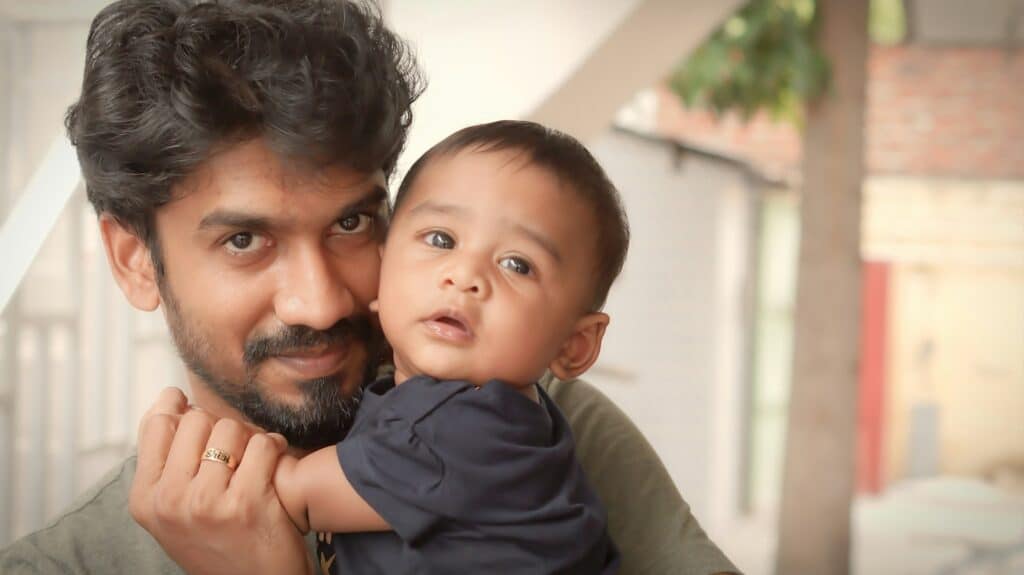Postpartum depression affects the whole family. The new mom’s distress is often disorienting to her partner – he may sense that she needs support but feel at a loss as to how to offer it. Fathers also frequently report a reduced capacity for providing meaningful help due to their own struggles in the early postpartum weeks and months. Common concerns include fatigue, irritability, and loneliness. This article will provide helpful tips for how you can support your partner and yourself through postpartum depression and/or anxiety.
How You Can Help Your Partner
One of the most helpful things you can do for your partner is to ask her what is troubling her. For instance, many mothers with postpartum depression experience intrusive, scary thoughts (Barr & Beck, 2008). Frequently they suffer in silence, fearful that any disclosure of their experience would result in negative judgment. Let her know that you are there to listen, not judge. Validate ger struggle, and say explicitly that you are there to help. Let her know that you love her. She does not have to go through this alone, and you can help her understand that.
If your partner is experiencing postpartum depression or anxiety, she may experience increased irritability. Be mindful of her needs. Keep communicating with her. Let her know that you are listening to her concerns, and that you are there for her. When you are feeling upset, your first instinct may be to distance yourself from her. This can be isolating, especially for new mothers. You may be her main – or only – support. Verbalize your feelings and express your needs as well. You may need to take a break if you become emotionally overwhelmed, but let her know that you will come back and keep communicating.
You may want to problem-solve when she expresses frustration, but you are encouraged not to. Instead, ask her if and how you can help. Does she just want you to listen, or is she looking for tangible support? If she is asking for support, ask her what she thinks she needs. If she does not know what you can do, then it might be a good time to offer some suggestions of ways you can help.
Finally, let her take breaks. Allow her to have time to herself. Take some time to care for the baby, both for you to get more comfortable with newborn care and to give her a chance to rest. Breaks are necessary for new moms, and fatigue is correlated with worsening postpartum symptoms (Letourneau et al., 2012). During this time, your work is crucial to helping your partner, and doing what you can will make a significant positive difference in the recovery process.
How You Can Help Yourself
You have to balance caring for your partner and caring for yourself. Seeing your partner struggling is not easy, and it can take a toll. Research has shown that when mothers are experiencing postpartum depression, between 24-50% of their partners will also experience depression (Goodman, 2004). Postpartum depression may impact your relationship with your partner. It tends to lead to increased stress, decreased effectiveness in conflicts, and may have an impact on libido and feelings of emotional connection (Letourneau et al., 2012). Yes, you are there to support your partner, but do not forget to support yourself.
Spend one-on-one time with your newborn. We often think of self-care as doing things that relax us, but sometimes what we most need is to be reminded of why we are going through this struggle. The time you spend with your child can be rejuvenating and reinvigorating. The bonds you form with your child now will last for years.
This is also a time for mindfulness and reflection. Take the time to get in touch with what your body is telling you. When stressed, we sometimes ignore our own needs. Pay attention to what you need. Find activities that can bring you some relief and help release some of the tension you may be feeling. I recommend having activities that you can do both alone and with your partner. It will be hard to spend time with just you and your partner in these early months, but every moment you can just be in each other’s presence can be monumental. Take some time to acknowledge the work you are both putting in. Be there for each other.
Finally, do not be afraid to seek out help. This can be one of the most stressful times in our lives. It is okay to ask for support, whether that be from friends, family, or mental health professionals. Your partner does not need to get through this alone. Neither do you.
References
Barr, J., & Beck, C. (2008). Infanticide secrets: Qualitative study on postpartum depression. Canadian Family Physician, 54,1716–1723.
Goodman, J. H. (2004). Paternal postpartum depression, its relationship to maternal postpartum depression, and implications for family health. Journal of Advanced Nursing, 45(1), 26–35.
Letourneau, N. L., Dennis, C., Benzies, K., Duffett-Leger, L., Stewart, M., Tryphonopoulos, P., Este, D., & Watson, W. (2012). Postpartum depression is a family affair: Addressing the impact on mothers, fathers, and children. Issues in Mental Health Nursing, 33, 445-457.


